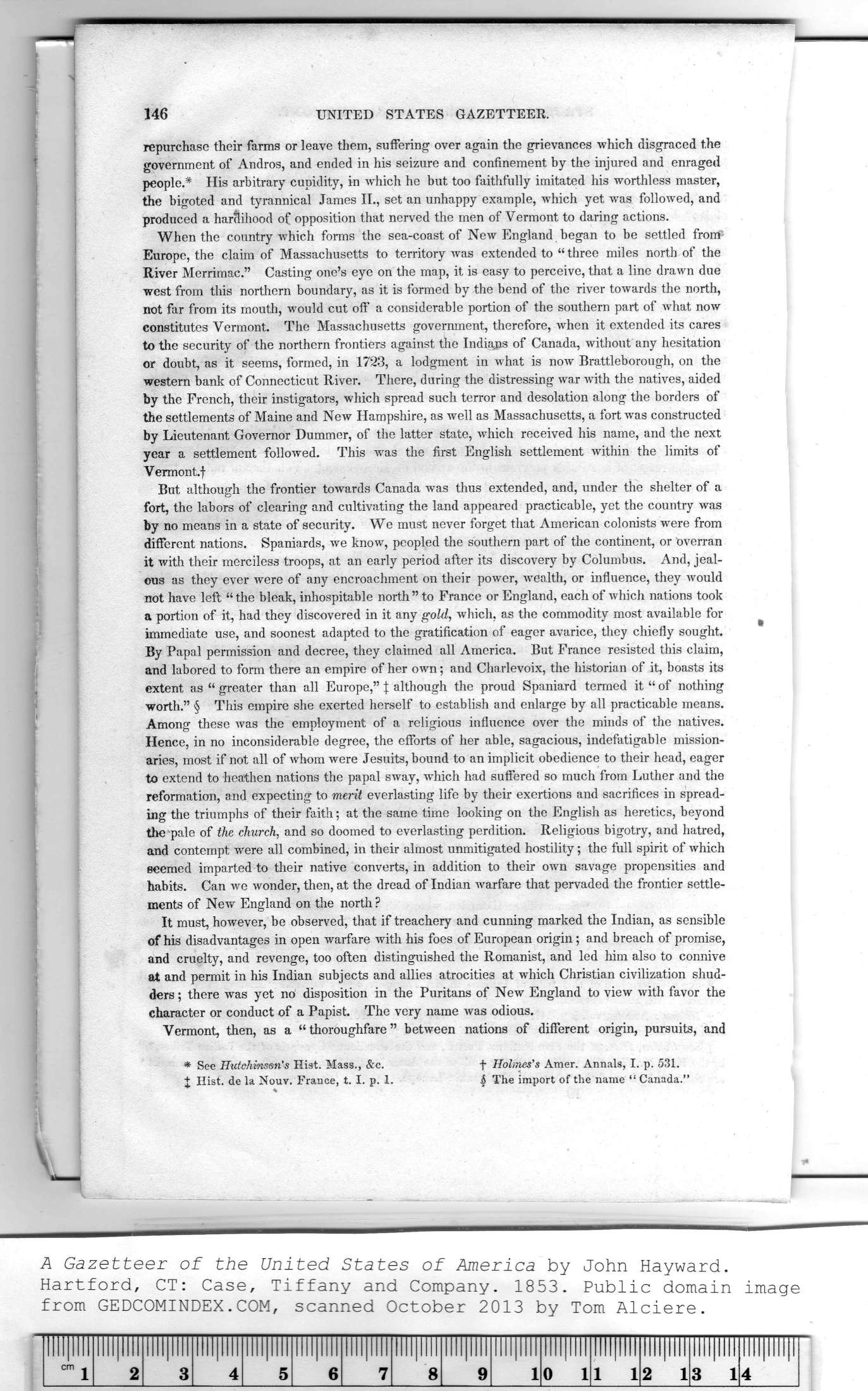Click on the image for a larger version suitable for printing. HOME PAGE ... REFERENCE PAGE ...THIS GAZETTEER’S PAGE |
 |
|
Note: Ctrl and + increases the font size of the text below, Ctrl and - decreases it, and Ctrl and 0 resets it to default size. —! !- i I ! 146 UNITED STATES GAZETTEER. j repurchase their farms or leave them, suffering over again the grievances which disgraced the i i government of Andros, and ended in his seizure and confinement by the injured and enraged | i people.* His arbitrary cupidity, in -which he but too faithfully imitated his worthless master, ' the bigoted and tyrannical James II., set an unhappy example, which yet was followed, and | produced a hardihood of opposition that nerved the men of Vermont to daring actions. I When the country which forms the sea-coast of New England began to be settled from ^ Europe, the claim of Massachusetts to territory was extended to “ three miles north of the j River Merrimac." Casting one's eye on the map, it is easy to perceive, that a line drawn due : west from this northern boundary, as it is formed by the bend of the river towards the north, ! not far from its mouth, would cut off a considerable portion of the southern part of what now constitutes Vermont. The Massachusetts government, therefore, when it extended its cares l j or doubt, as it seems, formed, in 1723, a lodgment in what is now Brattleborough, on the I western bank of Connecticut River. There, during the distressing war with the natives, aided j by the French, their instigators, which spread such terror and desolation along the borders of the settlements of Maine and New Hampshire, as tvell as Massachusetts, a fort was constructed 1 ! year a settlement followed. This was the first English settlement within the limits of i Vermont, f But although the frontier towards Canada was thus extended, and, under the shelter of a j by no means in a state of security. We must never forget that American colonists were from different nations. Spaniards, we know, peopled the southern part of the continent, or overran reformation, and expecting to merit everlasting life by their exertions and sacrifices in spread- It must, however, be observed, that if treachery and cunning marked the Indian, as sensible ders ; there was yet no disposition in the Puritans of New England to view with favor the Vermont, then, as a “ thoroughfare " between nations of different origin, pursuits, and * See Hutchinson's Hist. Mass., &c. f Holmes's Amer. Annals, I. p. 531. J Hist, de la Nouv. France, t. I. p. 1. 5 The import of the name “ Canada."
|